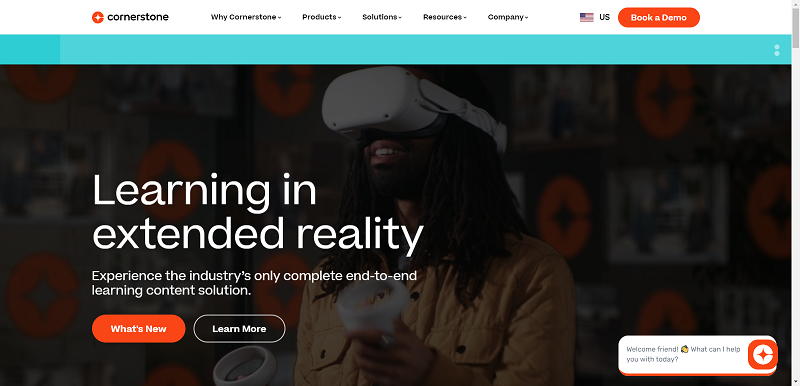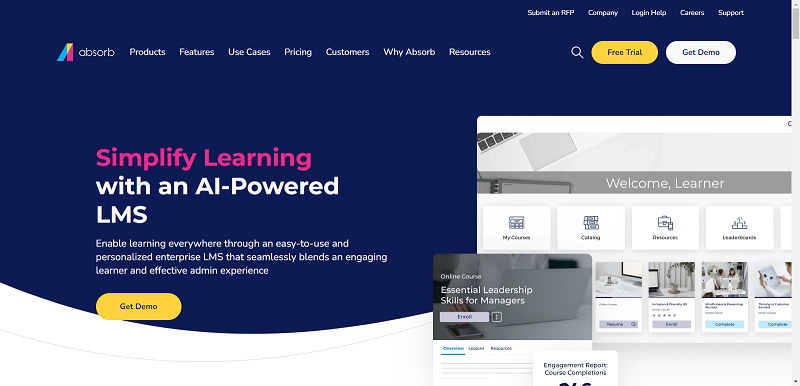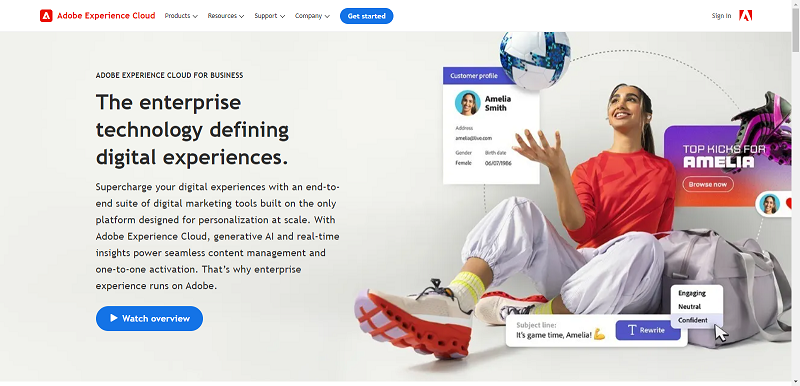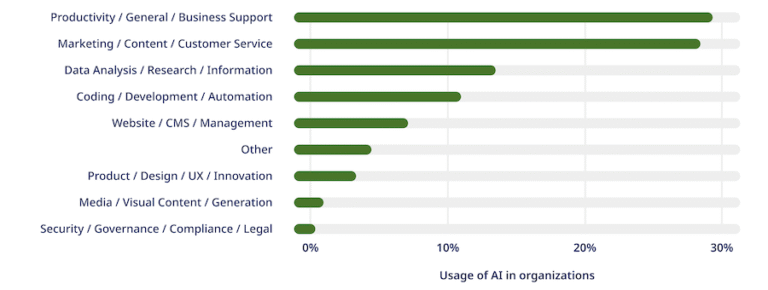Forma LMS, founded in 2012, is an open-source learning management system designed to meet the diverse needs of healthcare organizations. Known for its flexibility and cost-efficiency, Forma LMS is used by clients such as European Medical Center, Geneva University Hospitals, and other healthcare institutions. The platform supports a wide range of functionalities, including course management, skills tracking, and detailed reporting, enabling healthcare organizations to deliver effective training and ensure compliance with industry standards.
Founded in 1999, D2L is a global leader in learning management systems, providing innovative solutions tailored for healthcare education. Their Brightspace platform is used by top healthcare institutions like Johns Hopkins University, Mayo Clinic, and Cleveland Clinic. D2L’s solutions offer robust features such as adaptive learning, competency-based education, and detailed analytics to enhance the learning experience and ensure compliance with healthcare regulations. D2L’s focus on accessibility and user-friendly interfaces ensures that learners at all levels can benefit from their comprehensive educational tools.
Since its inception in 2012, TalentLMS has been providing a straightforward, cloud-based LMS platform that simplifies training for healthcare organizations. Clients like the American Red Cross, Pfizer, and Cigna appreciate TalentLMS for its ease of use, rapid deployment, and cost-effectiveness. The platform supports various content types, including videos, presentations, and assessments, and offers extensive reporting tools to monitor progress and ensure compliance with healthcare training standards.

360Learning, founded in 2013, focuses on collaborative learning, making it an ideal choice for healthcare organizations looking to enhance team-based training and knowledge sharing. Clients such as AstraZeneca, Sanofi, and GSK utilize 360Learning to create interactive, peer-driven courses that improve engagement and retention. The platform’s social learning features, including discussion forums and peer reviews, foster a community of continuous learning, essential for keeping healthcare teams updated with the latest best practices and innovations.
Founded in 2007, Litmos is renowned for its comprehensive LMS solutions tailored to the healthcare industry. Healthcare giants such as HealthSouth, GE Healthcare, and Bayer rely on Litmos for their training needs. The platform offers a vast library of pre-built healthcare courses, including compliance and clinical training. Litmos’s mobile-friendly design ensures that healthcare professionals can access critical training resources on the go, while its powerful analytics and reporting tools help organizations track and manage their training programs effectively.
Cornerstone OnDemand, established in 1999, offers a comprehensive LMS solution that caters to the healthcare sector’s specific training needs. Prominent clients include Cleveland Clinic, Mount Sinai Health System, and Kaiser Permanente. Cornerstone’s platform provides robust features such as compliance management, performance tracking, and mobile learning capabilities. The system’s scalability and integration options make it a preferred choice for large healthcare organizations looking to streamline their training and development programs.
By Randy Ferguson
LatitudeLearning, established in 2009, specializes in delivering robust LMS solutions for healthcare education. Notable clients include Henry Schein, McKesson, and Abbott Laboratories. LatitudeLearning’s platform supports extensive customization, allowing healthcare organizations to tailor their training programs to meet specific needs. Its features include detailed reporting, certification tracking, and support for multiple learning formats, making it a versatile solution for managing complex healthcare training requirements.

This list of the leading healthcare LMS leaders highlights companies that excel in meeting the sector’s unique demands. These platforms support mobile learning, offer customizable content, and provide robust reporting tools, helping healthcare organizations streamline training and ensure staff competency.
Absorb LMS, founded in 2003, delivers a powerful learning management system used by leading healthcare providers like Kaiser Permanente, Boston Scientific, and Baylor Scott & White Health. Known for its intuitive interface and customizable features, Absorb LMS enables healthcare organizations to efficiently manage compliance training, track certifications, and deliver engaging learning experiences. The platform supports mobile learning, ensuring that healthcare professionals can access training anytime, anywhere, which is crucial for their demanding schedules.

Established in 2005, Docebo offers a versatile LMS platform designed to meet the unique needs of healthcare organizations. Its AI-powered system provides personalized learning paths and robust reporting capabilities, ensuring that healthcare professionals can stay up-to-date with the latest industry standards. Clients include Medtronic, Philips Healthcare, and Pfizer. Docebo’s platform supports a variety of learning formats, including e-learning, virtual classrooms, and on-the-job training, making it a flexible solution for diverse training needs in the healthcare sector.
Dr. Glen Stream, Chairman of Family Medicine for America’s Health, highlights the crucial role of cloud computing in the medical field: “We believe consumer health technologies — apps, wearables, self-diagnosis tools — have the potential to strengthen the patient-physician connection and improve health outcomes”
Adobe Learning Manager, launched in 2015, delivers a cutting-edge LMS platform that is widely used in the healthcare industry. Clients such as Thermo Fisher Scientific, Boston Children’s Hospital, and Cardinal Health benefit from Adobe’s powerful features, including AI-driven recommendations, advanced analytics, and seamless integration with other Adobe products. The platform supports various learning formats and devices, ensuring that healthcare professionals have access to vital training resources whenever needed.

As the healthcare industry evolves, robust Learning Management Systems (LMS) are increasingly critical. These platforms ensure medical professionals remain educated, compliant with regulations, and proficient in the latest practices and technologies. The future of healthcare LMS will likely integrate advanced technologies like AI, personalized learning paths, and data-driven insights to enhance training efficacy and engagement.




